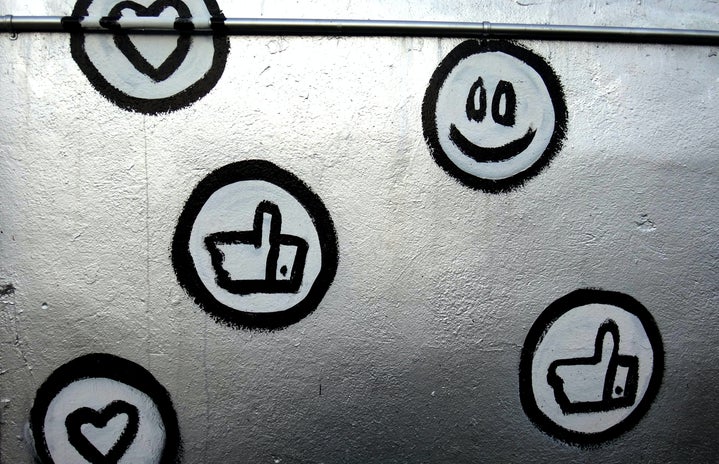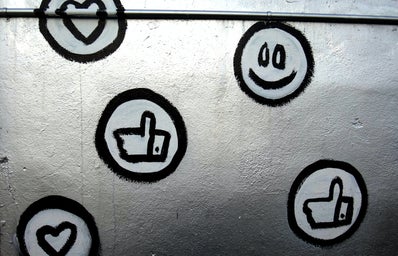In the midst of an intense workout—well, as intense as my out-of-shape self can get—my best friend, chugging along at my side, flashed me her phone.
The phone’s screen, proudly showing what, to me, seemed deplorable, forced an instinctual halt in my workout. As I stood there, honed in on the screen, I finally understood the significance of my “Internet and the Law” class, in which we recently discussed the vile nature of cyberbullying.
The screen, stamped with the longhaired bovid that serves as Yik Yak’s logo, left my jaw on the floor. Not literally, but it couldn’t have been too far off.
What I read was a student post about my writing ventures, essentially saying I’m undeserving of my accomplishments thus far and any “kudos” I’ve received. As the cyber snowball effect goes—masked by the sites Terms of Agreement, which protects its anonymous posters—things went downhill within a matter of minutes.
Apparently, the same commenter not only had opinions on the caliber of my writing but my personal life as well. Needless to say, factual accuracy was also unapparent in the few posts that followed. Still, though, these things hurt.
Despite my inability to remove the invisible “cyber blanket” covering whoever managed to unsheathe the verbal sword that interrupted my de-stressing workout, I was pleased to find out that three “down votes” means a post is removed from the local feed.
Regardless, even if I was able to bare all the cold-hearted clutter, something about Yik Yak’s policy seemed generally unfair—disregarding its enabling of the seemingly enlarging population of bullies on college campuses and elementary, middle and high schools. Sickeningly, too, I’m sure its unintended “bully-catering” platform extends beyond the underage.
First off, it’s saddening to think we live in a day in age where “down votes” quantify offensive content. Further, it’s even sadder that people have the availability to anonymously spread this kind of hateful dialogue.
While I’m confident in the strides I’ve made towards success, despite my persistent self-doubt and constant questioning of the professional path ahead of me, reading words such as those leave a permanent scar. Even worse, Yik Yak leaves me wondering whose fingers fluttered at their keyboard, proudly tearing my work and personal life down. The hard truth: I’ll never know who it was.
For me, it’ll be easy to move past this. I’ve got friends and a family that loves me and, as far as my confidence goes, I’m getting there.
For other people, the post-bullying process isn’t quite as fluid.
Scrolling through the opinion-sharing platform’s feed, I saw a multitude of comments defaming people in or far removed from my life. From comments on sexual encounters around campus to demoralizing banter regarding those seen in passing, it seemed that Yik Yak was the model of cowardly behavior in the modern day.
While the traditional bully was faced with the weighing of options—in other words, whether it’s worth throwing a punch or saying certain words—the cyberbully seldom faces repercussions.
It’s hard for me to imagine, but the same keyboard I use to write stories, submit assignments and sometimes communicate with distant relatives, is the same keyboard that kills others.
Words are powerful and sometimes I fall through, failing to think of the most compassionate ways to express my upset, but the reality is that in the cyber world accountability is harder to come by.
Daily life knows no “Terms of Agreement” and “Privacy Settings” for those with a biased, distasteful message, so why should the Internet?

